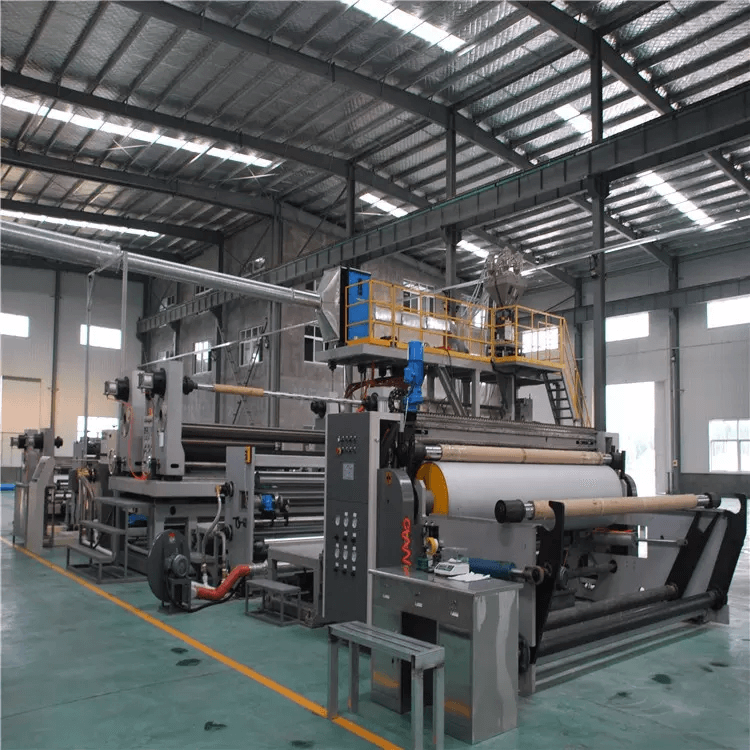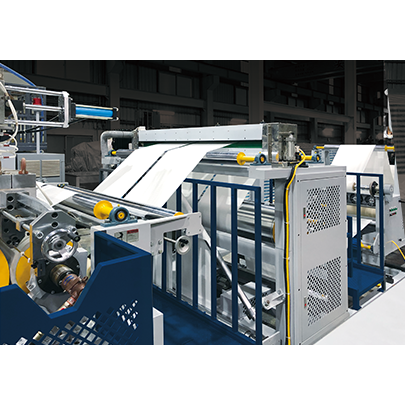重置帐户密码
对于帐户
6-20 个字符(仅限字母加数字)
密码不一致
重置成功
您的密码已重置。您可以使用新密码登录。
登录


The Ultimate Guide to Lamination Machines
2025-02-17 09:50:41
Lamination machines might not be the sexiest topic in the world, but if you're in the business of packaging, printing, or any industry that relies on durable, high-quality materials, they're absolutely essential. In fact, I remember the first time I saw a lamination machine in action—it was like watching magic happen. Thin layers of material were seamlessly bonded together, creating a product that was stronger, more visually appealing, and ready to stand the test of time. If you're looking to wholesale lamination machines, you've come to the right place. Let's dive into everything you need to know.
What is a Lamination Machine?
At its core, a lamination machine is a device that bonds multiple layers of material together. Think of it like a high-tech glue machine, but way cooler. The process involves using heat, pressure, or adhesive to combine materials such as plastic films, paper, fabric, or even metal sheets. The result is a composite material that's stronger, more durable, and often more visually appealing than the individual layers alone.

Why You Need a Lamination Machine
Enhanced Durability and Protection
One of the most significant benefits of lamination is the enhanced durability it provides. Whether you're protecting important documents, creating waterproof packaging, or producing high-quality labels, lamination ensures that your materials can withstand the elements. I once worked with a small printing company that struggled with faded and damaged labels. After investing in a lamination machine, their products became virtually indestructible, leading to a significant boost in customer satisfaction.
Improved Aesthetics
Lamination doesn't just make your materials stronger—it also makes them look better. By adding a glossy or matte finish, you can elevate the visual appeal of your products. In the world of packaging, first impressions matter. A well-laminated product not only looks professional but also stands out on the shelves. For example, a local cosmetics brand I know used lamination to create sleek, waterproof packaging for their products. The result? Their products became instant hits, thanks in part to their eye-catching appearance.
Increased Lifespan
When you laminate materials, you're essentially giving them a protective shield. This shield helps prevent wear and tear, moisture damage, and even UV degradation. In industries like automotive or electronics, where products need to last, lamination is a game-changer. Imagine trying to keep a circuit board functional without protection from dust and moisture. It would be nearly impossible. Lamination ensures that your products remain in top condition for as long as possible.
Types of Lamination Machines
Roll-to-Roll Laminators
If you're dealing with large volumes of material, roll-to-roll laminators are your best bet. These machines handle continuous rolls of material, making them perfect for high-speed production lines. They're commonly used in industries like packaging, where efficiency is key. I've seen factories churn out thousands of laminated rolls in a single day using these machines. The automation and precision they offer are truly remarkable.
Sheet Laminators
For smaller-scale operations or projects that require more precision, sheet laminators are the way to go. These machines handle individual sheets of material, allowing for greater control over the lamination process. They're ideal for businesses like print shops or small packaging companies. I once visited a local print shop that used a sheet laminator to create custom, high-quality business cards. The level of detail and quality they achieved was impressive, and their customers loved the results.
Automatic vs. Manual Laminators
The choice between automatic and manual laminators often comes down to your production needs and budget. Automatic laminators are equipped with advanced technology that allows for seamless, hands-off operation. They're perfect for large-scale production and can significantly boost efficiency. On the other hand, manual laminators offer a more hands-on approach, which can be beneficial for smaller projects or businesses on a tight budget. I've seen small businesses thrive with manual laminators, using them to create unique, high-quality products without breaking the bank.
Key Features to Look for in a Lamination Machine
Precision Control
When it comes to lamination, precision is everything. Look for machines that offer precise temperature, pressure, and speed controls. These features ensure that your materials are laminated evenly and consistently, reducing the risk of defects. I once worked with a company that struggled with uneven lamination due to poor temperature control. After upgrading to a machine with precise controls, their product quality improved dramatically.
Durability and Build Quality
Investing in a high-quality lamination machine is crucial for long-term success. Look for machines made from durable materials and built to withstand the rigors of daily use. A well-built machine will not only last longer but also produce higher-quality results. I've seen businesses save money by opting for cheaper machines, only to find themselves replacing them within a year. Spending a bit more upfront on a durable machine can save you a lot of hassle and expense in the long run.
User-Friendly Interface
Whether you're running a large-scale production line or a small print shop, a user-friendly interface is essential. Look for machines with intuitive controls and easy-to-read displays. This will make it easier for your team to operate the machine and reduce the learning curve. I've seen businesses struggle with complex machines that required extensive training. A simple, user-friendly interface can make all the difference in terms of efficiency and productivity.
Real-World Applications of Lamination Machines
Packaging Industry
In the packaging world, lamination is used to create everything from food packaging to shipping labels. It helps protect products from moisture, UV damage, and physical wear. For example, a local food manufacturer I know uses lamination to create waterproof packaging for their products. This not only keeps the food fresh but also ensures that the packaging remains intact during shipping.
Printing Industry
Print shops rely on lamination machines to create high-quality, durable prints. Whether it's business cards, posters, or banners, lamination adds a professional touch and ensures that the prints last. I once visited a print shop that used lamination to create custom, waterproof posters for an outdoor event. The posters looked amazing and withstood the elements perfectly, thanks to the lamination process.
Electronics Industry
In the electronics sector, lamination is used to create flexible circuits and protective coatings for components. It helps prevent damage from dust, moisture, and physical impact. I've seen companies use lamination to create lightweight, durable circuit boards for smartphones and other devices. The precision and durability offered by lamination machines are essential in this industry.
Choosing the Right Lamination Machine for Your Business
When it comes to selecting a lamination machine, there are several factors to consider. Your choice will depend on your production needs, budget, and the types of materials you'll be working with. Here are a few tips to help you make the right decision:
Assess Your Production Needs
Take a close look at your current and future production requirements. If you're planning to scale up your operations, it's worth investing in a machine that can handle larger volumes. On the other hand, if you're just starting out, a smaller, more affordable machine might be the way to go. I've seen businesses grow rapidly and find themselves limited by their initial equipment choices. Planning ahead can save you a lot of headaches down the line.
Consider Your Budget
Lamination machines can vary widely in price, depending on their features and capabilities. While it's tempting to opt for the cheapest option, remember that quality and durability are crucial. Look for a machine that offers a good balance of features and affordability. I've seen businesses save money by choosing a mid-range machine that met their needs perfectly, without breaking the bank.
Research and Reviews
Before making a purchase, do your homework. Read reviews, ask for recommendations, and even visit trade shows to see machines in action. This will give you a better idea of what to expect and help you make an informed decision. I once attended a trade show where I saw a demo of a new lamination machine. The features and quality were impressive, and it ended up being a great investment for a business I was working with.
JINXIN: Your Go-To Lamination Machine Manufacturer
If you're looking to wholesale lamination machines, I highly recommend checking out JINXIN. They are a leading manufacturer in the industry, known for their high-quality, durable machines. JINXIN offers a wide range of lamination machines, from roll-to-roll laminators to sheet laminators, and they're designed to meet the needs of businesses of all sizes.
What sets JINXIN apart is their commitment to precision and innovation. Their machines feature advanced temperature and pressure controls, ensuring consistent and high-quality lamination. Plus, their user-friendly interfaces make it easy for your team to get up and running quickly.
I've personally worked with several businesses that have invested in JINXIN machines, and the results have been impressive. One print shop I know saw a significant boost in productivity and customer satisfaction after upgrading to a JINXIN machine. The quality and durability of their products improved dramatically, and they were able to take on larger projects with confidence.
Conclusion
Lamination machines are more than just tools—they're investments in the future of your business. By choosing the right machine, you can enhance the durability, appearance, and lifespan of your products, setting yourself apart from the competition. Whether you're in the packaging, printing, or electronics industry, a high-quality lamination machine is a game-changer.
When it comes to selecting a machine, consider your production needs, budget, and the types of materials you'll be working with. And if you're looking for a reliable, high-quality manufacturer, don't forget to check out JINXIN. Their machines are designed to meet the highest standards of precision and durability, making them an excellent choice for businesses of all sizes.
联系我们

